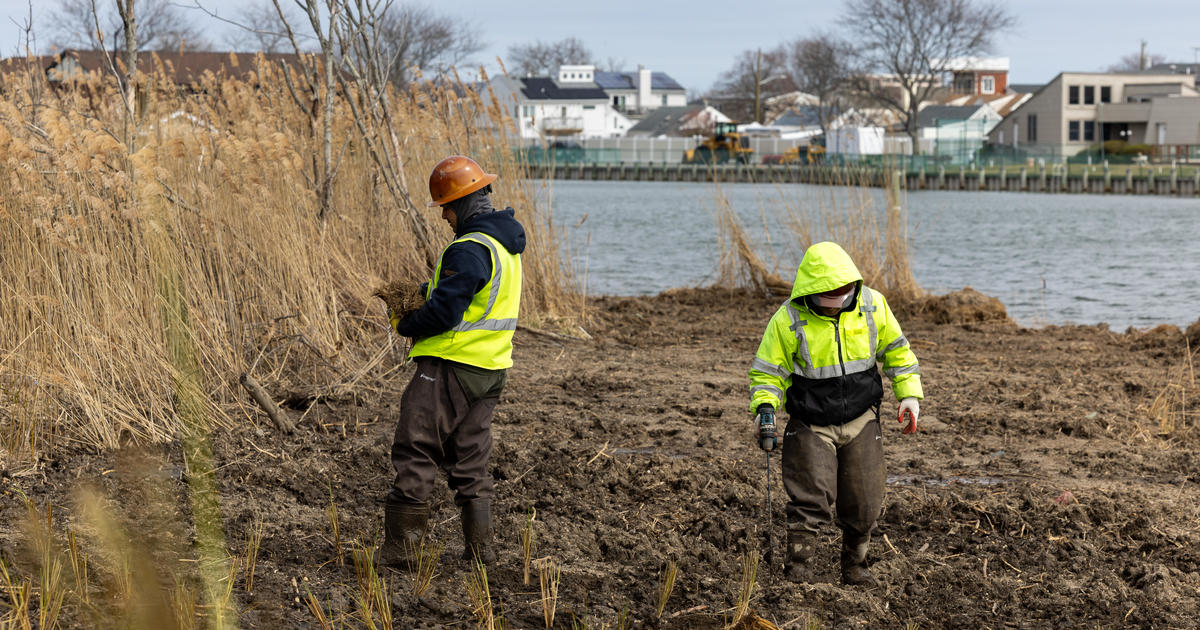Expert Advice For Taking Care Of Your Lawn Through The Dog Days Of Summer
PARAMUS, N.J. (CBSNewYork) -- Rising temperatures, punishing sunshine, and drought conditions are a combination that can easily be a lawn killer.
But as CBS2's Elise Finch explained, there are ways that your lawn can survive the dog days of summer.
Harry Raines goes to great lengths to take care of his lawn, something that he says is difficult because his grass gets a lot of shade.
"I get too much to be honest with you, my lawn is spotty in places," he said.
Raines said the challenge is even greater this year because it's been so dry.
Since January 1, we've gotten just under 21 inches of rain leaving us with a 5 inch rainfall deficit, and most of the Tri-State Area is dealing with moderate drought conditions.
Experts say the easiest thing you can do to help your lawn withstand a hot, dry summer is to go easy on the mowing -- letting grass grow a bit taller than you normally would.
"The grass being long, shades itself. So a three inch cut is usually the average long length," Rudy Eisele, Eisele's Nursery & Garden Center said.
Eisele said the shade provided by taller grass reduces water evaporation and leads to deeper roots.
He also advised resisting the urge to water your lawn more than twice a week as over-watering draws the roots closer to the surface and dries them out. It also attracts more insects and leads to fungal growth.
Eisele said when it comes to flowers, make sure they're surrounded by quality mulch, like hemlock.
"At minimum should be two inches of mulch, and what that's going to do is keep it moist longer with minimal amounts of water," he said.
Lawnmower blades should be sharpened after 10 hours of mowing, and grass clippings should be left where they land. The clippings will act as a fertilizer saving money and helping your lawn survive a dry sultry summer.
Experts said the key to growing drought tolerant grass is to water it deeply but not frequently -- giving it at least an inch of water every week in one or two waterings.
Water should only be increased during a heat wave.



